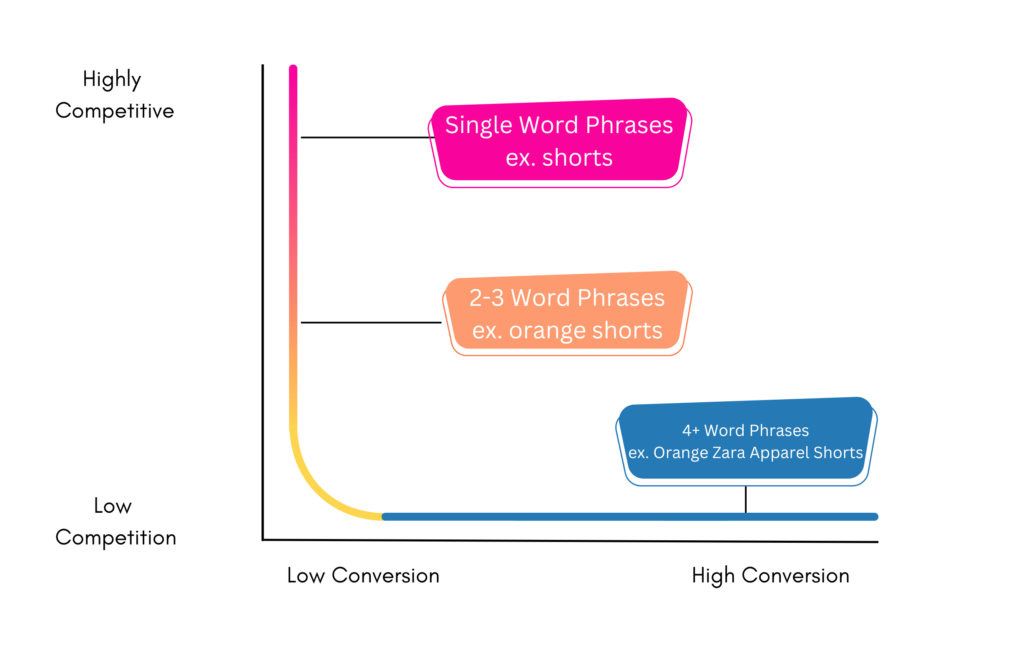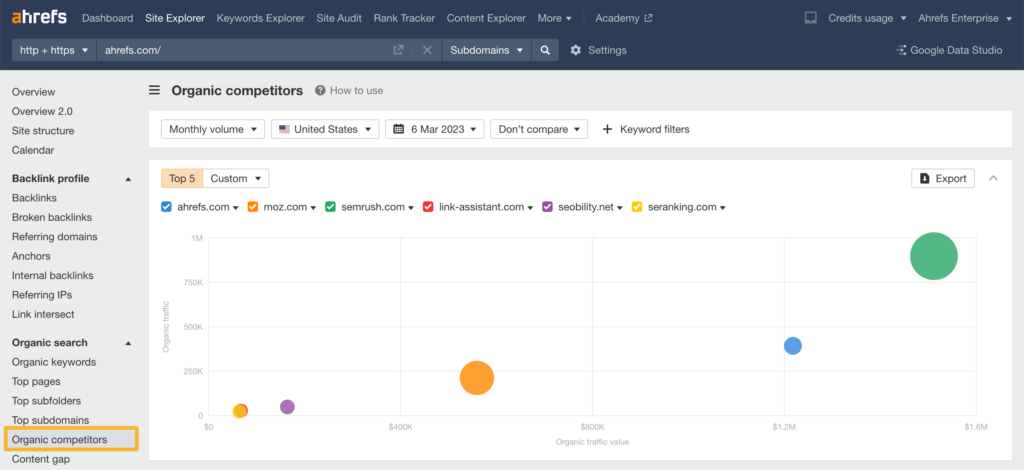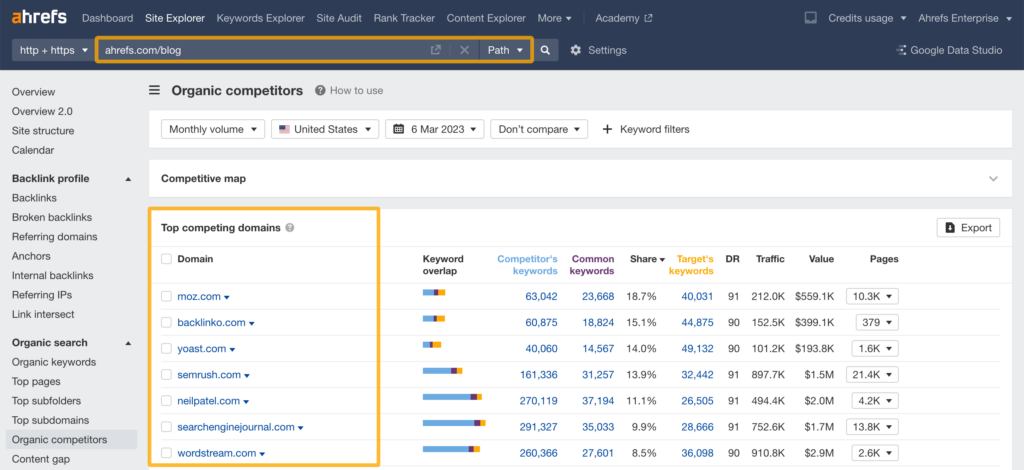Are you struggling with how to choose keywords SEO for your business? You’re not the only one. SEO keyword selection is a critical aspect of search engine optimization (SEO) for improving your website's visibility and success.
You might be able to list keywords for your company in dozens, but which ones will rank well in the search results? When considering how to come up with SEO keywords, tailor the keywords to specific goals. Create a content marketing plan that all flows together to achieve your business goals.
In this guide, you’ll receive valuable insights and strategies for selecting the right keywords for your business. Let’s get started and find keywords to maximize your online presence.
Understanding Keyword Types

When finding SEO keywords, it's important to understand the difference between short-tail and long-tail keywords. Short-tail keywords are brief and more general, consisting of one to three words. They usually are common in search queries, but your company can easily get lost among the competition.
On the other hand, long-tail keywords are more specific and descriptive, often containing three or more words. With a lower search volume, they are less competitive and have higher conversion rates.
For example, if you own an online shoe company, a short-tail keyword might be “shoes.” Imagine all the businesses that come up when someone types in “shoes.” But if you narrow down the search with a descriptive long-tail keyword like “women’s running shoes in bright colors,” you may have a chance at showing up in the results and targeting a more specific audience that is more likely to convert.
If you wonder how to determine the best keywords for SEO, combining short- and long-tail keywords will help you reach a broad audience while also narrowing in on your target customers.
Understanding Keyword Intent
Keyword intent refers to the purpose or motivation behind a user's search query. Getting inside the head of your potential customers is crucial for building and optimizing your website effectively.
There are four main types of keyword intent: informational, navigational, investigational, and transactional.
• Informational keywords are used when users seek information or answers to their questions. For instance, typing “how to repair a hole in the wall” is an informational keyword.
• Navigational keywords are used to find a specific website or brand. “Shoe company that uses recycled plastic” is a good example of a user looking for a specific brand.
• Investigational keywords are used to research a product or service before making a decision. An example is when a user types, “Is retinol cream harmful to use long-term?”
• Transactional keywords signal that users are ready to make a purchase. A user may search “best rain boots under $75,” which usually means they are ready to buy the product if the price is right.
Tailor your content and identify keywords that match the intent of your target audience to attract qualified traffic and improve user engagement on your website.
Best Keyword Research Tools
To conduct effective keyword research, you need the right tools at your disposal. Some of the best keyword research tools in the market include Ahrefs, SEMRush, AnswerThePublic, and AlsoAsked. These tools will provide insights into search volumes, competition levels, and related keyword suggestions.
• Ahrefs offers comprehensive keyword analysis, backlink research, and competitive analysis.
• SEMRush is valuable for extensive keyword data, domain analytics, and content optimization suggestions.
• AnswerThePublic produces content ideas by brainstorming the questions users ask about a specific topic.
• AlsoAsked provides a list of related questions people search, sparking more ideas for your content.
Use these tools and more to uncover hidden keyword opportunities and bring more users to your website.
Search Relevant Topics Related to Your Industry
Researching relevant topics is a crucial step in developing an effective SEO strategy. Start by researching industry blogs, forums, and social media discussions. Pay attention to the questions asked by your target audience.
Stay up to date with industry trends by consulting Google trends and social media hashtags. When you are in the know with the latest on-brand topics, you will be able to attract more relevant customers.
Keyword Selection
Now that you have a better understanding of the different types of keywords and how to research relevant topics, let's dive into the process of selecting the right keywords for your business.
Step 1: Choose a Primary Keyword to Target
Choose a primary keyword that captures the main idea of your product or service. For example, if you have a website with recipe ideas for healthy breakfasts, the primary keyword should be “healthy breakfast recipes.”
Step 2: Compile a List of Secondary Keywords
Provide a list of supporting keywords to serve as secondary keywords. You can use short- and long-tail keywords in the list. For your breakfast recipe website, you may choose “high-protein breakfast” or “vegan breakfast ideas that taste good.” Use keyword research tools to help compile your list.
Step 3: Identify Search Volume
How many times did someone use your keyword in a search? The search volume will answer that question within a specified timeframe. You can use this information to identify the keyword’s popularity and potential to reach your target audience.
If a search volume is high, you must also consider the competition associated with the keywords. Will your business get lost in a sea of competition? Use Ahrefs and SEMRush to provide volume data and help you choose related keywords that may not be as saturated.
Step 4: Perform Benchmarking


photo from www.ahrefs.academy
Conduct competitor research by performing benchmarking. Analyze competitors’ keywords to identify new keywords and find what is working for them that may also work for you. Ahrefs is a tool that will analyze your competitors’ keyword rankings.
Pinpoint keywords relevant to your company, but set you apart from competitors. Then you will narrow in on an audience more likely to convert.
Step 5: Discover Keywords with Low Competition
Targeting keywords with low competition can be a game-changer for your website's visibility. These keywords may have lower search volumes but a higher chance of ranking well in search engine results.
Finding less competitive keywords and using them can attract quality traffic by weeding out all the competition. You can maximize the benefits of keyword research tools when you identify relevant keywords with lower competition and decent search volumes.
Keyword Mapping
Now it’s time to learn how to do keyword mapping. Is each page of your website optimized for search engine results? A good keyword mapping template will help you achieve that.
What Is Keyword Mapping
Keyword mapping is the strategic process of matching keywords to specific pages on your website to ensure that each page has an excellent SEO presence. It helps search engines recognize the relevance and purpose of each page, improving ranks in search results.
How to Do Keyword Mapping?
Start by creating a list of your target keywords and the pages you want to optimize for those keywords. Assign each keyword to a specific page based on the content on the page and the intent. Ensure that the keyword appears in the page's title, headings, meta description, and within the content itself. This makes it clear to search engines what can be found on the page, increasing the chances of showing up in search engine results.
E-commerce Keyword Mapping Template
For e-commerce websites, keyword mapping is especially important. The E-commerce Keyword Mapping Template helps you organize and map your keywords effectively.
(https://docs.google.com/spreadsheets/d/12JAa1LtimcB9-ExhJHOgFjaD4jwOn_zqrkdGXea2m8g/edit?usp=sharing – our table
https://docs.google.com/spreadsheets/d/1E1fgit8sVy7I9c8DOWz7bq8gcjB3ai4Q4zu0UZhGFeE/view - competitor's table) They may want a screenshot from one of these
This keyword map template allows you to track the target keyword, the corresponding page URL, and the metadata. You can get a full vision of your website, including all the pages, to ensure they have been optimized with intentional and researched SEO keywords.
Find Success by Choosing High-Performing Keywords
Choosing the right keywords for your business will increase your website's visibility and drive targeted traffic. You can expect improved SEO results by understanding the different types of keywords, conducting thorough keyword research, and implementing keyword mapping strategies.
Choosing the right keywords is not a one-and-done process. You should continually review each keyword’s performance and stay competitive in the industry. When you are armed with researched and high-performing keywords, you'll be able to achieve your SEO goals and further the success of your business.
Got questions or need personalized advice on keyword selection and SEO strategies for your business? Contact us today, and our team of experts will be happy to assist you in optimizing your online presence.

No Comments.